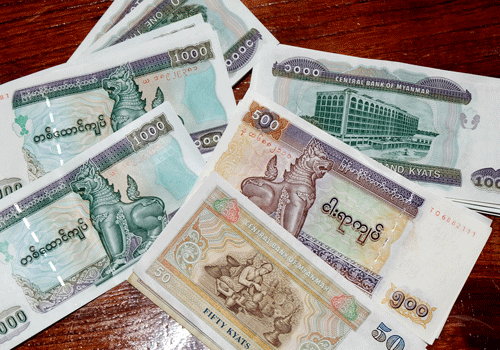Myanmar: World Bank US$200m loan to develop macroeconomic stability and fiscal resilience
The World Bank said that at the end of May, Myanmar reforms and the country’s poverty reduction efforts and efforts to maintain macroeconomic stability will be given financial assistance.
On April 27, the financial institution approved a US$200 million loan to the Myanmar government to support the Myanmar government’s effort to achieve sustained macroeconomic stability with improved fiscal resilience.
The approved loan will set up a “First Macroeconomic Stability and Fiscal Resilience Development Policy Operation” which includes reforms that are critical in modernising economic management and building an effective state.
The new assistance aims to help Myanmar maintain a stable economy needed for growth and poverty reduction, and increase budget resources for greater access to quality public services. The program also offers long-term, concessional financing for critical public investments.
These reforms will address challenges such as rising inflation, public debt sustainability, efficiency of government spending and tax collections.
“With the help of policy reforms, we hope to implement economic policies to ensure more access to public services such as electricity, education, healthcare, and trust-building.
“For example, if we can minimise currency inflation and control the kyat’s stability, investment of the highest quality will come in. Employment opportunities and jobs can be created and growth can be achieved in an inclusive manner,” said U Kyaw Win, Union Minister of the Ministry of Planning and Finance.
The Development Policy Operation has two pillars: the macroeconomic stability pillar and the fiscal resilience pillar.
The macroeconomic stability pillar includes reforms to promote prudent public debt management, an end to the Central Bank of Myanmar financing of the fiscal deficit, fiscal discipline of state-owned enterprises and policy-based budgeting.
The reforms under the fiscal resilience pillar aim to increase revenue mobilisation, establish prudent gas revenue management, ensure the financial viability of the power sector and facilitate effective management of public finance.
As a rapidly opening economy, the World Bank says Myanmar faces new challenges in sustaining macroeconomic stability. Policy and institutional capacity to deal with macroeconomic pressures have faced intensified challenges, which in turn impact on public service delivery and broader stability. The Development Policy Operation aims to play a critical role in building a modern state, which requires a mix of institution building as well as policy reforms.
In addition, concessional budgetary financing can support long‐term public investments and help build fiscal buffers. Lessons from other fragile and conflict affected countries have shown how critical policy‐based lending can be in strengthening policies and institutions for stability and growth over the medium to long‐term. The policy actions can help sustain confidence in economic policies, which is important for private investment, and help protect much needed fiscal space for public service delivery and poverty reduction.
“Poor households are the ones most severely affected when prices of food and other basic needs increase. This program is designed to benefit poor and vulnerable people through reduction in price pressures.
“The World Bank is pleased to support Myanmar’s efforts to strengthen their policies and institutions for stable growth over the long-term,” said Ulrich Zachau, the World Bank country director for Southeast Asia.
Inflation and rising food prices have long plagued the livelihoods of many households in the country.
Sudhir Shetty, Chief Economist of East Asia and Pacific Region at the World Bank, has recently said that inflation in Myanmar has been rising and stayed quite high due to the impact of the floods which affected the food prices. Food prices started to rise.
The credit will come from the International Development Association (IDA), the Bank’s fund for the low income country. The terms for the IDA credit include a maturity of 38 years, with a grace period of six years and a zero interest rate.
According to the Myanmar Economic Monitor: Anchoring Economic Expectations published by the World Bank, Myanmar’s economy is projected to grow at an average of 7.1 percent per year in the next three years. Inflation is expected to ease up with prudent fiscal and monetary policies. Private and public investments in non-commodity sectors and infrastructure are projected to rise.
“The biggest vulnerability and risk that the Myanmar economy faces is that it will not be able to maintain macro stability.
“What I mean is inflation will continue to be high. Fiscal deficits will continue to be high. So those are the factors that Myanmar policy makers need to take into account,” Mr Shetty said.
Source: http://www.mmtimes.com/index.php/business/25819-world-bank-us-200m-loan-to-develop-macroeconomic-stability-and-fiscal-resilience.html


 Thailand
Thailand




